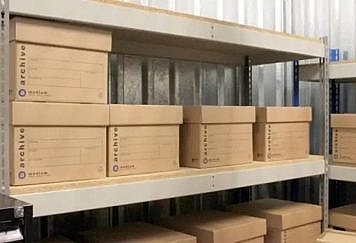Shipping containers are essential components of the global trade industry, enabling quick and efficient transportation of goods across vast distances. An array of shipping container types is available to suit any cargo need, and understanding the different types can help you choose the right one for your shipment. This article will provide an overview of four common types of shipping containers.
Standard Dry Containers
A standard dry container is the most common shipping container, and it is used to transport general cargo. These containers typically measure 20 ft or 40 ft in length, 8 ft in width, and 8-9 ft in height. They are equipped with locking bars and twist locks at the four corners of the container, allowing them to be safely secured against a ship, container truck, or container trailer. The container has a sliding door at the end and two ventilation valves on the top to help with air circulation and temperature control. A standard dry container is best suited for non-perishable cargo such as clothes, fabrics, toys, furniture, household items, etc.
High Cube Containers
A high cube container is similar to a standard dry container except that it has a taller height of 9-10 ft. These containers are typically 40 ft in length, 8 ft in width, and 9-10 ft in height. A high cube container provides additional storage volume compared to the standard container, enabling you to transport more cargo while keeping the container weight under limits. These containers can transport items like furniture, food products, and large machinery or equipment.
Open Top Containers
An open-top container is designed for cargo that cannot fit through a container door or requires unique loading/unloading methods. It has an open top and a tarpaulin system to secure the container. The container is typically up to 53 ft in length, 8 ft in width, and 9 ft in height. It is best used for tall machinery or items that require over-height loadings, such as logs, pipes, and other construction materials.
Reefer Containers
A reefer container is a refrigerated container used to transport perishable cargo such as food, medicine, and plants. It has an insulated container with a built-in temperature control system that can be adjusted from 0ºC to +30ºC. It is typically 20 ft or 40 ft in length, 8 ft in width, and 8-9 ft in height. A reefer container is ideal for transporting temperature-sensitive cargo that requires a controlled environment throughout its journey.
What To Consider When Choosing A Container For Shipping
Choosing a suitable container for your shipment is essential to ensure that your cargo reaches its destination safely and securely. There are various factors to consider when selecting a container to ensure that it meets your needs.
Container Specifications
The container specifications should be considered to ensure that the container meets your cargo needs. The size of the container should match the size of your cargo, and you must also consider its loading capacity as it determines how much weight can be safely loaded into the container. Additionally, you must check for additional features, such as double doors or open-top containers, to ensure they are suitable for your cargo. Before purchasing or renting, you must also check the container’s condition and flooring.
Cost
The cost of renting or purchasing a container should also be considered when choosing a suitable container for your shipment. It is essential to compare container prices and rental rates before deciding. It would be best to consider the container’s lifespan, as some containers may be more cost-effective in the long run. Additionally, you must factor in container transport fees when considering container costs.
Cargo Type
When selecting a container, you must consider the type of cargo that needs to be transported. The container features should match the requirements of your cargo, such as insulated containers for temperature-sensitive items, open-top containers for over-height loads, etc. Additionally, container security measures should also be considered, as some container types may have more secure locks or extra protection features.
Container Availability
The container availability should also be considered when selecting a container for your cargo needs. You must ensure that the container is available at the desired port or warehouse when you need it, as container availability can vary. Additionally, container rental policies should be considered, as some companies may offer discounts or waived fees for long-term container rentals.
Follow TechStrange for more Technology, Business, and Digital Marketing News.





